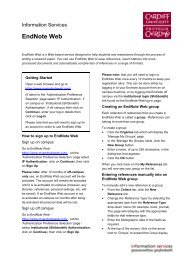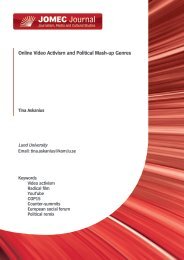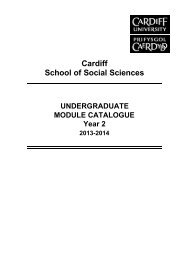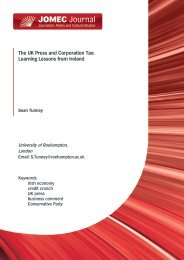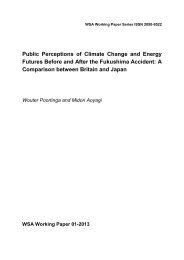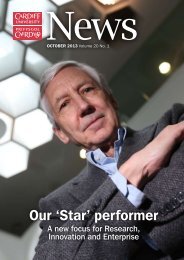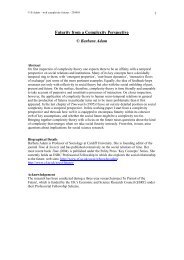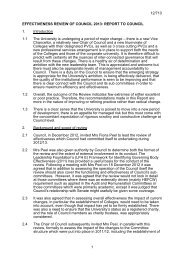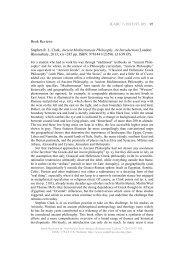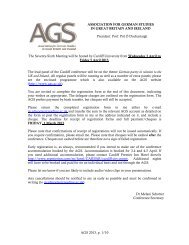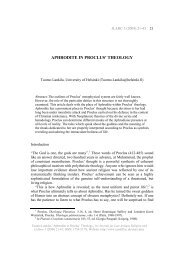Catherine's essay - Cardiff University
Catherine's essay - Cardiff University
Catherine's essay - Cardiff University
Create successful ePaper yourself
Turn your PDF publications into a flip-book with our unique Google optimized e-Paper software.
arena (Pateman, 1976; Pateman and Mills, 1988; Pateman and Mills, 2007). As politics is<br />
also conducted in the public arena, it is a natural conclusion that politics is perceived as a<br />
masculine pursuit, with women represented by their association with men. Furthermore, in<br />
maintaining this public/private dichotomy, politics intrinsically excludes the interests of<br />
women (Pateman and Mills, 1988). Amy Caiazza (1997) discusses this in depth and<br />
concludes that if feminism is ignored as political theory, then politics cannot be truly<br />
understood. For Savigny and Marsden (2011) this issue of gendering holds the key for<br />
explaining the divide between political science and feminism. They claim that feminism<br />
rejects traditional constructs of gender on many levels whether this is a post-colonial<br />
rejection of ‘female’ as a non-classed, non-racial asexualised group or the challenges issued<br />
by post-modernists and constructivists to traditional notions of gender roles (Savigny and<br />
Marsden, 2011).<br />
The execution of power is perhaps worth exploring at this juncture. The concept of power as<br />
a hierarchical structure was reconceptualised by Michel Foucault, who theorised that power is<br />
displayed and executed in all relationships (Foucault, cited by Lynch 2011). Lynch explains<br />
that for Foucault, power must be understood as a force born of struggles, confrontations and<br />
transformations. It is upheld by support systems and the schema in which they take effect. In<br />
his work Panopticisim, Foucault hypothesised that political power is exercised by each<br />
individual through the very smallest of actions, all of which work together to create<br />
discourse. So, for Foucault, the male-gendering of political research is a result of a power<br />
struggle that renders women inadequate for politics. Peter Bachrach and Morton Baratz<br />
(1962) develop this concept to hypothesise that the hierarchies and power exercised within<br />
social sciences are cyclical, that they feed into one another and thereby political science<br />
remains largely separate to developments made in feminism.<br />
This is not to say however that it remains so. Raewyn Connell (2006) acknowledges that,<br />
whilst feminism’s initial complaint that social science was gender-ignorant was valid,<br />
sufficient progress has been made for the state of patriarchy to be re-valued. Sharon Krause<br />
(2011) concurs, stating that the field of social science has diversified greatly as a result of<br />
feminisms and that this has led to an expansion of our understanding. Lynne Segal (1999)<br />
advises that, just as feminism has diversified, we should allow this diversification to filter<br />
into all fields of social sciences. There is certainly some evidence to suggest that, whilst



